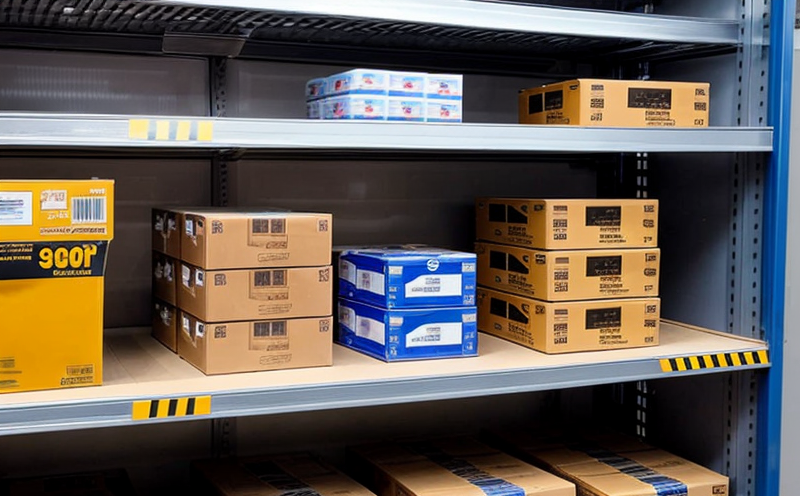ASTM D5748 Protrusion Puncture Resistance Testing
The ASTM D5748 standard provides a method to determine the puncture resistance of flexible packaging used in medical devices. This test is critical for ensuring that the packaging maintains its integrity and prevents contamination, which directly impacts patient safety and the quality of the medical device.
Medical devices are often packaged using materials designed to protect them from environmental factors such as moisture, contaminants, and physical damage. However, these packages must also be robust enough to withstand punctures or protrusions that could compromise their integrity during storage, transportation, or use. ASTM D5748 aims to evaluate the resistance of these materials against protruding objects, ensuring that they can withstand accidental punctures without compromising the contents.
The test involves subjecting a sample of the packaging material to a specified force using a standardized probe. The force is applied in a controlled manner, and the maximum load required to penetrate the sample is recorded as the puncture resistance. This value provides critical insights into how well the packaging can protect the enclosed medical device under real-world conditions.
For quality managers and compliance officers, this test ensures that the chosen packaging materials meet regulatory requirements and industry standards for protecting sensitive medical devices. R&D engineers benefit from understanding the performance of their material formulations to improve product design and development. Procurement professionals can ensure they are sourcing materials that meet these stringent requirements.
The ASTM D5748 standard is widely recognized in the medical device sector, underscoring its importance for maintaining high standards of quality and safety. Compliance with this test helps manufacturers avoid costly recalls and potential legal issues associated with compromised packaging.
Applied Standards
The ASTM D5748 standard is part of a broader set of testing protocols that ensure the integrity of medical device packaging. This standard specifically addresses the need to assess protrusion puncture resistance, which is essential for maintaining the sterility and safety of the packaged devices.
- ASTM D5748-21a: Standard Test Method for Puncture Resistance of Flexible Packaging Using Protruding Needles
- ISO 9001:2015: Quality Management Systems
- IEC 62304: Medical Electrical Equipment – Software Life Cycle Processes and Documentation Requirements
The ASTM D5748 standard is integral to the compliance framework for medical device manufacturers. It ensures that packaging can withstand accidental punctures, thereby protecting the contents from contamination or damage.
Scope and Methodology
The scope of ASTM D5748 encompasses flexible packaging materials used in medical devices. The primary focus is on evaluating the puncture resistance of these materials against protruding objects, which could include accidental impacts during storage or handling.
The methodology involves several steps to ensure accurate and consistent testing:
- Sample Preparation: Samples are cut from the packaging material according to specified dimensions. These samples must be free from defects that could affect the test results.
- Testing Equipment: A specialized puncture tester is used, which applies a standardized force with a probe of specific geometry and weight.
- Test Procedure: The probe is lowered onto the sample at a specified rate until it penetrates. The force required to achieve penetration is recorded as the puncture resistance value.
- Data Analysis
The results are analyzed to determine if the packaging meets the required standards for puncture resistance. Compliance with these tests ensures that medical devices remain safe and effective throughout their lifecycle.
Customer Impact and Satisfaction
- Safety Assurance: Ensures that the packaging remains intact, safeguarding the integrity of the medical device.
- Regulatory Compliance: Helps manufacturers meet regulatory standards for packaging integrity.
- Enhanced Reputation: Demonstrates a commitment to quality and safety, enhancing customer confidence in your products.
By adhering to ASTM D5748 testing protocols, customers can have peace of mind that their medical devices are protected against accidental punctures. This not only meets regulatory requirements but also builds trust with healthcare providers and patients.
In addition to the above benefits, adherence to this standard can lead to cost savings by minimizing the risk of product recalls due to compromised packaging. It also supports a positive reputation in the industry, which is crucial for long-term success.





